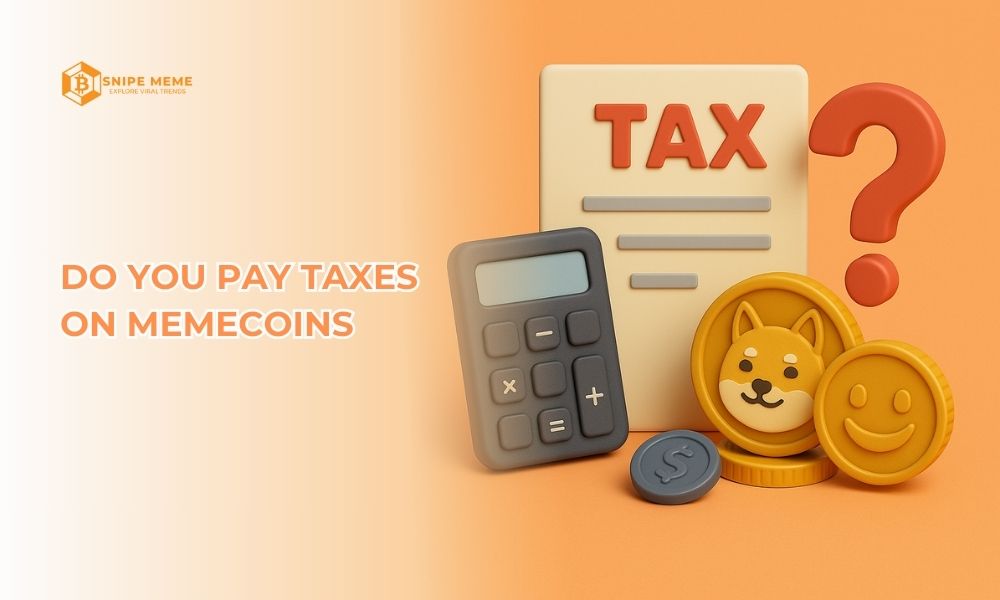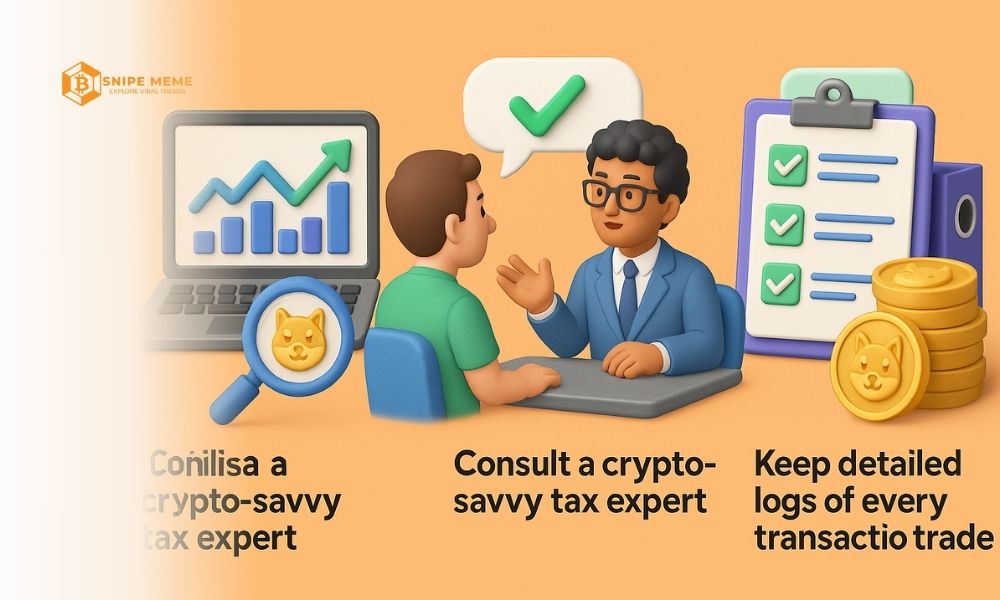Do you pay taxes on memecoins? This question puzzles many as meme-based cryptocurrencies like Dogecoin and Shiba Inu soar in popularity. With their skyrocketing values and speculative nature, these digital assets aren’t just fun and games. Governments worldwide, including Vietnam, often classify profits from memecoins as taxable income. Let’s dive into the details of how taxes apply to these quirky coins.
Contents
What Are Memecoins and Why Taxes Matter
Memecoins are cryptocurrencies inspired by internet memes or cultural trends. Unlike Bitcoin or Ethereum, which rely on robust technological foundations, memecoins gain traction through community excitement and viral marketing. Their playful origins don’t exempt them from serious financial rules, though.
Tax authorities classify memecoins as digital assets, meaning profits aren’t free and clear. Whether you’re trading for quick gains or holding for the long haul, any earnings could be taxable. This makes understanding tax obligations a must for anyone diving into these coins.
So, do you pay taxes on memecoins? Yes, in many places, profits trigger tax liabilities. Staying informed keeps you compliant and ready for tax season.
Do You Pay Taxes on Memecoins?
The answer hinges on your country’s tax laws. Here are common scenarios:
Selling for Profit
When you purchase memecoins at a low price and later sell them at a higher value, this generates taxable profits. In Vietnam, such gains are subject to personal income tax at a rate of 5% for transferring assets, requiring careful tracking of transactions.
Swapping Memecoins
Exchanging one memecoin for another, such as trading Dogecoin for Bitcoin, is considered a taxable event in many jurisdictions. The tax is calculated based on the market value at the time of the swap, so documenting these trades is essential for reporting.
Receiving Free Memecoins
Getting memecoins through airdrops or as rewards can count as taxable income in several countries. In Vietnam, this is often taxed at 10% under personal income tax rules, unless specific exemptions apply, making it vital to check local policies.
So, do you pay taxes on memecoins? It depends on your actions and location, but staying informed ensures you meet your tax responsibilities.

How to Calculate Taxes on Memecoins
To figure out if you owe taxes, follow these steps:
| Step | Description | Example |
| Track buy and sell prices | Record the purchase price (cost basis) and sale price (market value) | Buy 1 million Dogecoin at $0.1, sell at $0.2 |
| Calculate profit | Subtract the purchase price from the sale price to find the profit | $200 – $100 = $100 |
| Apply tax rate | Use Vietnam’s 5% personal income tax rate for asset transfer profits | $100 x 5% = $5 |
| File tax declaration | Submit your tax declaration to the authorities by the year-end deadline | Pay $5 per local deadline |
Tips for Managing Memecoin Taxes
Leverage software tools to automate the tracking of your memecoin trades effortlessly. These programs can log every buy, sell, or swap, saving you time and ensuring accuracy when calculating profits for tax purposes, which is vital for compliance.
Seek advice from a tax professional who understands cryptocurrency regulations thoroughly. Their expertise can clarify complex rules, especially when determining if do you pay taxes on memecoins, helping you avoid mistakes and stay on the right side of the law.
Maintain comprehensive records of all your memecoin transactions as evidence if required. Documenting dates, amounts, and prices provides a clear trail for tax authorities, making it easier to justify your calculations and handle any audits smoothly.

So, do you pay taxes on memecoins? Yes, if they generate profit, tax obligations likely apply, even in Vietnam’s evolving regulatory landscape. Staying informed and prepared keeps you ahead of potential issues. For more insights on memecoins and crypto trends, follow Snipe Meme. Their updates can guide you through this wild digital frontier while ensuring you’re tax-savvy and ready for what’s next.